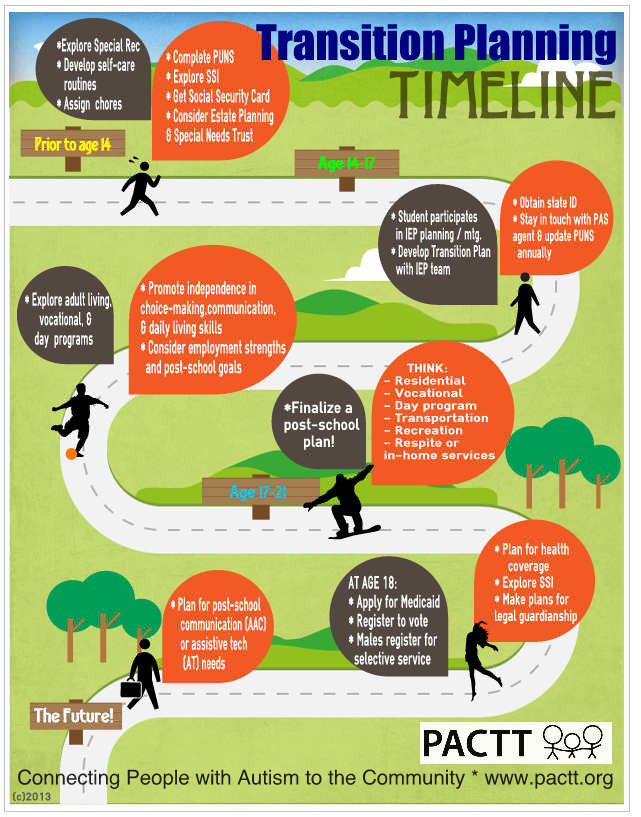Now is the time to familiarize yourself with the adult service options that may be available for your child. While most of these services can’t be accessed until an individual is at least 18, becoming aware of the individual’s needs and preferences is an important step in planning. Some programs and services are paid for by state funding, while other options must be paid for by the individual.
An overview of Developmental Disability Services offered by IDHS can be found here: https://www.dhs.state.il.us/page.aspx?item=81789
— Adult residential options
Community Integrated Living Arrangement (CILA): a living arrangement in a group home, family home or apartment with 8 or less unrelated adults with disabilities, funded by a Medicaid Waiver
Intermediate Care Facility for the Developmentally Disabled (ICF-DD): a residential facility funded by Medicaid serving adults with intellectual disability who require ongoing treatment and training, this category includes large, private, state-funded facilities.
Living in own home or family home: state-funded supports may be available to individuals who continue to live with their family or rent or buy their own home
— Day and Vocational Options
DHS/DDD Day Programs: State-funded services for people with developmental disabilities.
Community Day Services (formerly Developmental Training) - day programs that focus on developing daily living skills and economic self-sufficiency.
Supported Employment (see employment section and DHS website for more information)
Private Pay Programs full or partial day programs that include life skills, vocational training, and/or leisure opportunities for individuals with disabilities that are paid for by the participant rather than by state funding, Some DHS funded programs may also accept private pay participants.
Department of Rehabilitation Services (DHS/DRS) Vocational Rehabilitation (VR) services: http://www.dhs.state.il.us/page.aspx?item=29737 (Note: These services are typically best for individuals who have the potential to eventually work competitively without ongoing supports.)
College programs for people with intellectual disabilities: Post-secondary education programs designed for students with intellectual disabilities, often located on college campuses.







